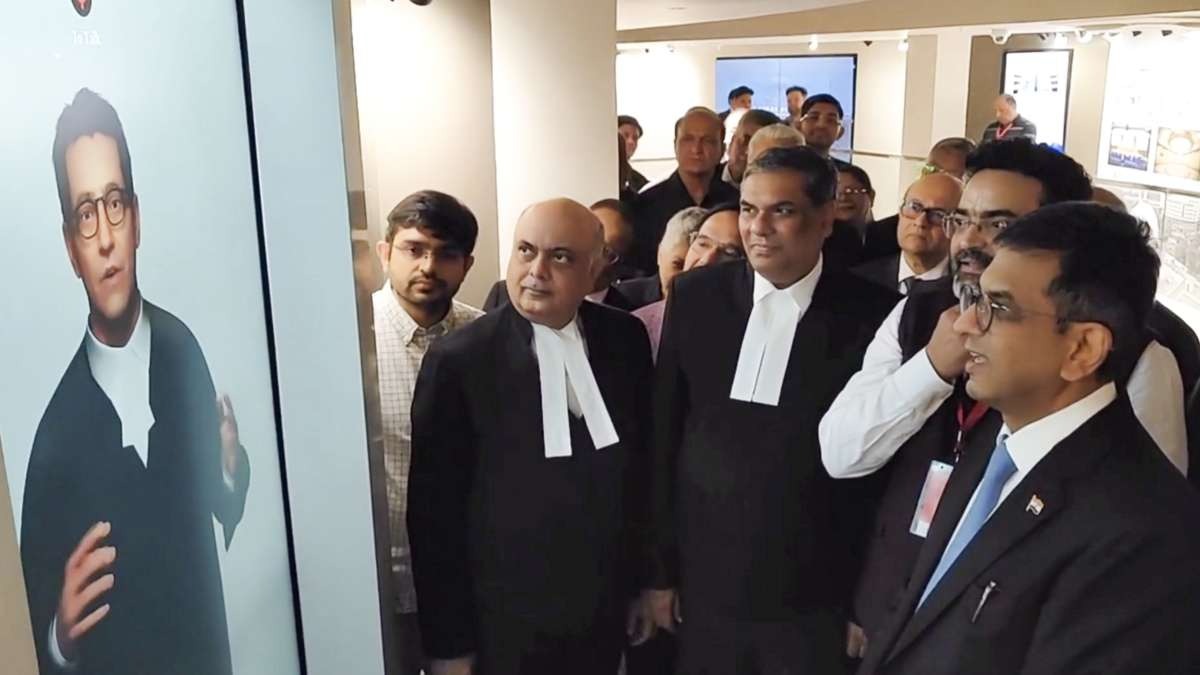
National: With the evolution of the latest technologies, it is not wrong to say that machines have now become the best friends of humans. Wherever we visit or look, a human's dependence on machines is undeniable. From mobile phones to laptops or the latest intelligence modules with problem-solving interaction mechanisms, machines have become an integral part of life, making it easier for everyone. However, amid this technological advancement, have you ever wondered what a human-machine one-on-one conversation over a lawful topic looks like?
Here, we bring to you a conversation between Chief Justice of India DY Chandrachud and an Artificial Intelligence (AI) lawyer over a lawful topic that grabbed headlines on Thursday (November 7). The interaction took place at the inauguration ceremony of the National Judicial Museum and Archive, where the CJI posed a question to the AI lawyer: "Is the death penalty constitutional in India?" The AI, embodied as a spectacled man wearing an advocate's bow tie and coat, responded, "Yes, the death penalty is constitutional in India. It is reserved for the rarest of rare cases as determined by the Supreme Court where the crime is exceptionally heinous and warrants such a punishment." The Chief Justice, looking impressed, responded with a smile. Significantly, during this interaction, Justice Sanjiv Khanna, who is set to take over as the next Chief Justice, accompanied the CJI."
'Museum to become interactive space for younger generation'
Significantly, speaking on the occasion, the CJI stated that the newly inaugurated museum reflects the ethos of the Supreme Court and its importance for the nation. He expressed his wish for the museum to become an interactive space for the younger generation.
"This (the museum) has taken almost a year and a half in conceptualization and planning. The actual execution has taken about six months. It's been done during court time. We thought that we must have not just a museum of artifacts, but a museum comparable to the best internationally, to project the importance of our institution and the high courts in delivering justice to our citizens and protecting the fundamental rights of our citizens," the CJI said.
"This reflects the importance of the court to the life of our nation. So, on behalf of all my colleagues here, I am pleased to dedicate this museum to the nation, allowing it to become an interactive space for the younger generation," he added.
It is pertinent to note that the top court's bar association and the office of the Chief Justice have recently clashed over the construction of the National Judicial Museum, which now stands at the location of the former judges' library. The lawyers' body had demanded a library and lounge at the location, but the CJI's office proceeded with the construction of the museum.
"Now a museum has apparently been proposed in the erstwhile Judges' Library, whereas we had demanded a library and café-cum-lounge for the members of the Bar, as the present cafeteria is inadequate to cater to the needs of the members. We are concerned that, despite our objections raised against the proposed museum in the erstwhile Judges' Library, work has started for the museum," the bar association had earlier stated.
--Advertisement--

 Desk
Desk Share
Share



